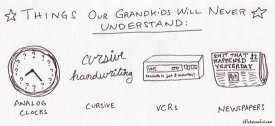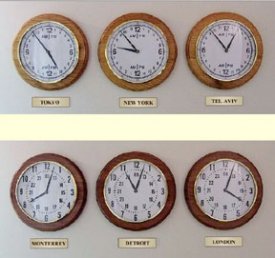Hugh
Member
Published: 03.31.2009
Days are numbered for printed news
By Shyam Jha
SPECIAL TO THE ARIZONA DAILY STAR
Tick, tock, tick. The clock is ticking for printed daily newspapers, especially second-place local papers, and most of them are in denial.
Arizona's oldest daily, the Tucson Citizen, is on life support, publishing on a day-to-day basis until a buyer emerges or the owners run out of patience. Recently, the Rocky Mountain News ended its print edition. Then the Seattle Post-Intelligencer followed suit. The Detroit Free Press is now delivered to homes only on weekends.
Two-newspaper towns are becoming one-newspaper towns. One newspaper towns, such as Ann Arbor, Mich., are losing their only daily. Even the venerable New York Times recently got its own bailout of $250 million from Mexican billionaire Carlos Slim. You get the picture.
What happened?
Newspapers' lifeblood is advertising. And print advertising has been moving to the Web over the last decade. Classified-advertising revenue has been decimated by free Web sites such as Craigslist and Kijiji. Newspapers have been slimming down to survive.
So shouldn't people pay for news? Here is the problem: Why pay for something you can get for free?
High-quality national newspapers like the New York Times, the Washington Post and the Los Angeles Times put their content on the Internet for free, hoping the click-through advertising will pay the cost. It remains wishful thinking, for the bulk of their revenue still comes from print advertising and subscriptions.
Add to that the emergence of blogs such as The Huffington Post, The Drudge Report, Politico, The Daily Beast and Talking Point Memo, with lively opinion and commentary updated round the clock, and you will begin to understand why the morning paper is akin to eating last night's leftovers.
And then there is Twitter. This online phenomenon, which lets people broadcast 140-character messages from their cell phones, has been growing like wildfire. The terrorist attacks in Mumbai were reported first on Twitter. So was the emergency landing of USAir 1549 in the Hudson River.
Nothing is more immediate than Twitter. How can a newspaper compete with that?
Newspapers have to rethink if the best way to get information to their audience is by buying paper, investing in expensive presses to print the dailies, and spending ever-increasing sums of money, not to mention having a sizable carbon footprint, to get the paper to customers' driveway.
Consider the alternative: The Internet. The delivery charge is paid by the customer in terms of Internet service provider fees. Only two Web sites — the Wall Street Journal's WSJ.Com, and Consumer Reports — are known to be profitable online publications.
Considering how much it costs to print and distribute a newspaper, it may make sense to give an e-book reader such as the Amazon Kindle free with a long-term subscription.
The vigil for the demise of ink-on-paper version of newspapers is on. Unless they realize they are in the information business, rather than in the business of printing and distribution, they will go the way of the typewriter and horse buggies.
Write to Shyam Jha at sjha@eller.arizona.edu
Give away a free e-reader with a long term subscription? Interesting bit of sarcasm there.
I recently cancelled my subscription to the print edition of the Wall Street Journal. I'm a stock market enthusiast and I like reading market data. Oddly, there is more stock market data available in the print USA Today than there is in the print WSJ. The WSJ just keeps cutting out more and more data and I couldn't take it anymore, I HAD to cancel. I'm actually angry that they would cut out so much data because they are adding more and more fluff, such as sports and the "Personal Journal", which is mostly 101 type advice articles. Now, I'm not calling sports news fluff, but I am calling the WSJ's version of sports news fluff. They don't even carry rakings of the top professional sports teams, probably the most important sports news there is.
I'm adjusting slowly to the internet. I'm really going to miss my morning paper though.






